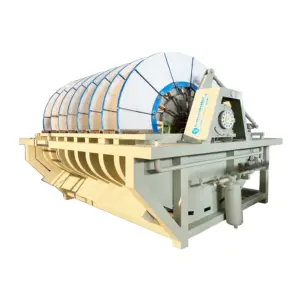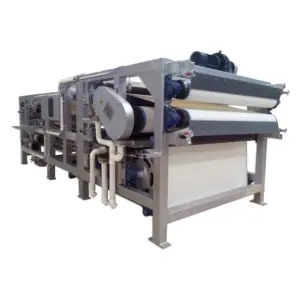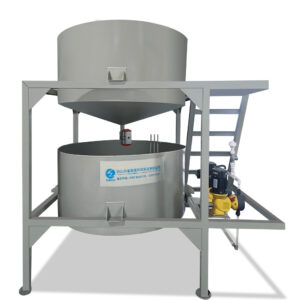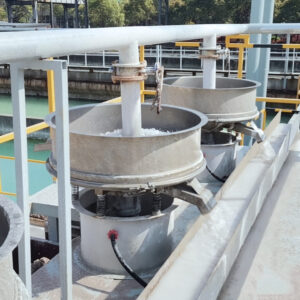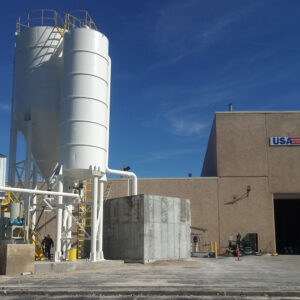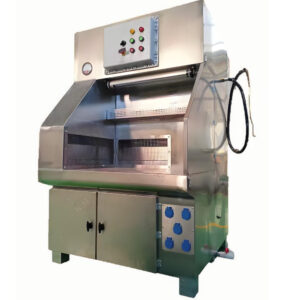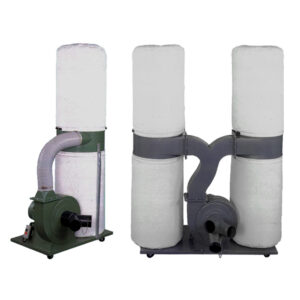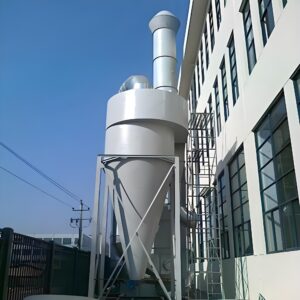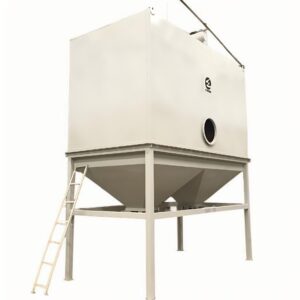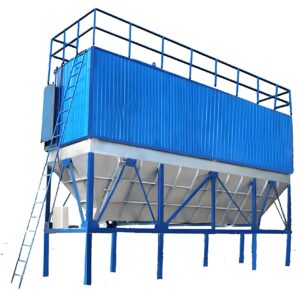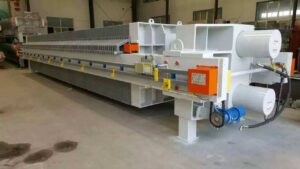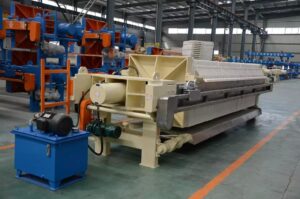The industrial filtration landscape has undergone a dramatic transformation over the past decade, yet many facilities still struggle with outdated equipment that fails to meet modern efficiency and sustainability demands. Traditional filter presses, while functional, often require excessive manual intervention, consume more energy than necessary, and lack the sophisticated monitoring capabilities that today’s competitive markets demand. This operational inefficiency translates directly into increased labor costs, higher energy consumption, and reduced throughput – factors that can significantly impact your bottom line in an increasingly cost-conscious industrial environment.
Without embracing advanced filter press technology, facilities risk falling behind competitors who leverage automation, smart monitoring, and innovative design features to achieve superior separation performance. The consequences extend beyond immediate operational costs, affecting product quality consistency, regulatory compliance, and long-term competitiveness in demanding industrial markets.
This comprehensive overview examines the cutting-edge features that define modern filtration systems, exploring how PORVOO Clean Tech and other industry leaders are revolutionizing separation technology through intelligent automation, innovative design, and sophisticated monitoring capabilities that deliver measurable improvements in efficiency, reliability, and operational control.
What Are Advanced Filter Press Systems and Why Do They Matter?
Advanced filter press systems represent a fundamental evolution from traditional filtration equipment, incorporating sophisticated automation, intelligent monitoring, and innovative design features that dramatically improve separation performance. These systems integrate multiple technological advances to create comprehensive filtration solutions that address the complex demands of modern industrial applications.
Core Technology Integration
Modern filter presses combine hydraulic automation with programmable logic controllers (PLCs) to create fully automated filtration cycles. The integration typically includes variable-frequency drives for precise pressure control, automated cake discharge systems, and real-time monitoring capabilities that track key performance indicators throughout the filtration process. This technological convergence enables operations to achieve filtration efficiencies exceeding 98% while reducing operator intervention by up to 75%.
According to recent industry analysis, facilities implementing advanced filtration systems report average energy savings of 15-25% compared to conventional equipment. The efficiency gains stem from optimized pressure profiles, intelligent cycle timing, and automated process adjustments that eliminate the inefficiencies inherent in manual operation.
Smart System Architecture
The architecture of intelligent filter systems centers on distributed control networks that enable seamless communication between system components. These networks facilitate real-time data exchange, predictive maintenance scheduling, and remote monitoring capabilities that transform traditional reactive maintenance approaches into proactive optimization strategies.
| Feature Category | Traditional Systems | Advanced Systems | Improvement Factor |
|---|---|---|---|
| Automation Level | Manual operation | Fully automated | 4-6x efficiency |
| Monitoring Capability | Basic pressure gauges | Real-time analytics | 10-15x data points |
| Energy Efficiency | Standard motors | Variable frequency drives | 15-25% savings |
| Maintenance Approach | Reactive | Predictive | 30-40% cost reduction |
Industrial Application Scope
Advanced filter press technology serves diverse industrial sectors, from pharmaceutical manufacturing requiring ultra-clean separation to mining operations processing high-volume slurries. The versatility stems from modular design approaches that allow customization for specific applications while maintaining core technological advantages.
In our experience working with industrial clients, the most significant benefits emerge in applications requiring consistent cake moisture content, automated operation during off-shifts, and detailed process documentation for regulatory compliance. These scenarios particularly benefit from the sophisticated control capabilities that characterize modern filtration systems.
How Do Smart Automation Features Transform Filtration Operations?
Smart automation represents perhaps the most transformative aspect of modern filter press technology, fundamentally changing how filtration operations are conducted and managed. These systems employ sophisticated algorithms to optimize filtration cycles, minimize manual intervention, and maintain consistent performance across varying operating conditions.
Intelligent Cycle Control
Automated filtration cycles utilize advanced algorithms that continuously adjust operating parameters based on real-time process conditions. The system monitors variables including feed concentration, pressure differential, and flow rates to determine optimal cycle timing and pressure profiles. This intelligent control typically results in 20-30% improvements in throughput while maintaining superior cake quality.
The control systems can automatically adjust for variations in feed characteristics, seasonal changes in raw materials, and equipment wear patterns. For example, when processing mining slurries with varying particle size distributions, the system automatically modifies pressure ramp rates and holding times to maintain consistent dewatering performance.
Automated Material Handling
Modern systems incorporate sophisticated material handling capabilities that eliminate manual intervention in cake discharge and cloth washing operations. Automated plate shifting mechanisms, integrated conveyor systems, and programmable wash cycles ensure consistent operation while reducing labor requirements by 60-70%.
“The integration of automated material handling with intelligent process control has revolutionized our filtration operations, enabling 24/7 operation with minimal supervision while maintaining product quality standards that exceed customer expectations.” – Senior Process Engineer, Major Chemical Manufacturing Facility
Advanced systems also feature automated cloth cleaning sequences that optimize washing effectiveness while minimizing water consumption. These systems can adjust washing parameters based on cake characteristics, cloth condition, and process requirements.
Predictive Maintenance Integration
Smart filter systems incorporate predictive maintenance capabilities that monitor equipment condition and predict maintenance requirements before failures occur. The systems track parameters including hydraulic pressure variations, motor current signatures, and vibration patterns to identify developing issues.
This predictive approach typically reduces maintenance costs by 30-40% while eliminating unplanned downtime. The systems can schedule maintenance activities during planned production breaks, optimizing overall equipment effectiveness.
What Innovative Technologies Define Modern Filter Press Design?
Contemporary filter press design incorporates breakthrough technologies that address traditional limitations while introducing capabilities previously unavailable in conventional equipment. These innovations span materials science, mechanical engineering, and process control to create systems that deliver superior performance across demanding applications.
Advanced Materials and Construction
Modern filter presses utilize high-performance materials specifically engineered for challenging industrial environments. Plates manufactured from reinforced polypropylene composites provide superior chemical resistance while maintaining structural integrity under high-pressure conditions. Filter cloth technologies have evolved to include membrane materials that achieve cake moisture levels 40-50% lower than conventional fabrics.
The construction approaches emphasize modular design principles that facilitate maintenance and enable capacity expansion without complete system replacement. Quick-release mechanisms and standardized connections reduce maintenance time by 50-60% compared to traditional bolt-together designs.
Membrane Technology Integration
Membrane filter presses represent a significant advancement in dewatering capability, utilizing inflatable membranes to apply additional pressure directly to filter cakes. This technology achieves final moisture contents of 15-20% in applications where conventional presses typically achieve 25-30% moisture levels.
The membrane systems operate through sophisticated pressure control sequences that gradually increase membrane pressure while monitoring cake compression characteristics. This controlled approach prevents cake cracking while maximizing dewatering effectiveness.
| Technology Type | Conventional Press | Membrane Press | Performance Advantage |
|---|---|---|---|
| Final Moisture Content | 25-30% | 15-20% | 35-40% improvement |
| Cycle Time | 120-180 minutes | 90-120 minutes | 25-30% faster |
| Cake Handling | Manual assistance often required | Automated discharge | 90% labor reduction |
Hydraulic System Innovations
Advanced hydraulic systems incorporate variable-displacement pumps and proportional control valves that provide precise pressure control throughout filtration cycles. These systems can maintain pressure tolerances within ±2% while automatically compensating for temperature variations and system wear.
The hydraulic innovations include energy recovery systems that capture and reuse energy during plate opening sequences, reducing overall power consumption by 10-15%. Accumulator systems provide rapid response capabilities while smoothing pressure fluctuations that can affect cake quality.
However, it’s worth noting that these sophisticated hydraulic systems require more skilled maintenance personnel and higher-grade hydraulic fluids, factors that should be considered in total cost of ownership calculations.
How Does Advanced Monitoring Improve Performance and Efficiency?
Advanced monitoring systems transform filter press operations from reactive processes into proactive, data-driven operations that continuously optimize performance while providing detailed insight into process behavior. These systems collect, analyze, and act upon vast amounts of operational data to maximize efficiency and reliability.
Real-Time Performance Analytics
Modern monitoring systems capture hundreds of data points per filtration cycle, including pressure profiles, flow rates, temperature variations, and power consumption patterns. Advanced analytics algorithms process this data to identify optimization opportunities and predict performance trends.
The systems typically provide operational dashboards that display key performance indicators in real-time, enabling operators to make informed decisions about process adjustments. Historical data analysis reveals patterns that inform long-term optimization strategies and capacity planning decisions.
Process Optimization Algorithms
Intelligent monitoring systems employ machine learning algorithms that continuously refine operating parameters based on historical performance data. These algorithms can identify optimal pressure profiles for specific feed characteristics, determine ideal cycle timing, and predict maintenance requirements.
In our experience, facilities implementing advanced monitoring report 15-20% improvements in overall equipment effectiveness within six months of installation. The improvements stem from optimized cycle timing, reduced downtime, and improved cake quality consistency.
Remote Monitoring Capabilities
Contemporary systems offer comprehensive remote monitoring capabilities that enable process oversight from any location with internet connectivity. These systems provide real-time alerts, performance trending, and diagnostic information that supports efficient operations management.
Remote monitoring particularly benefits facilities with multiple locations or those requiring off-hours operation. The systems can automatically adjust operations based on predetermined parameters while notifying operators of conditions requiring attention.
Research from the International Filtration Society indicates that facilities utilizing remote monitoring capabilities achieve 25-30% reductions in emergency maintenance events while maintaining higher average throughput rates.
What Are the Key Benefits and Considerations of High-Tech Filter Systems?
High-tech filter systems deliver substantial operational advantages while introducing considerations that require careful evaluation during selection and implementation. Understanding both benefits and limitations enables informed decisions that maximize return on investment while addressing specific operational requirements.
Operational Efficiency Advantages
Advanced filtration features deliver measurable improvements across multiple operational metrics. Energy consumption typically decreases by 15-25% through optimized pressure profiles and intelligent cycle control. Labor requirements are reduced by 60-70% through automation of routine operations including cake discharge, cloth washing, and system monitoring.
Throughput improvements of 20-30% are common due to optimized cycle timing and reduced downtime. Product quality consistency improves significantly through precise control of operating parameters and elimination of human variability factors.
A recent case study from a pharmaceutical manufacturing facility demonstrated 35% improvement in overall equipment effectiveness after implementing automated filter press systems. The facility achieved consistent cake moisture content within ±1% while reducing batch processing time by 40 minutes per cycle.
Investment and Implementation Considerations
While high-tech filter systems deliver substantial benefits, they require higher initial capital investment compared to conventional equipment. The premium typically ranges from 40-60% above standard systems, though payback periods usually fall within 18-24 months for most applications.
Implementation complexity represents another consideration, as these systems require skilled technicians for installation, commissioning, and ongoing maintenance. Training requirements for operating personnel are typically 2-3 times greater than conventional equipment.
Maintenance and Reliability Factors
Advanced systems generally demonstrate superior reliability through predictive maintenance capabilities and robust design. However, the complexity of control systems and automation components requires more sophisticated maintenance approaches.
The maintenance considerations include requirements for skilled electronics technicians, higher-grade spare parts inventory, and potentially longer lead times for specialized components. However, the predictive maintenance capabilities typically reduce total maintenance costs by 30-40% while eliminating most unplanned downtime.
| Benefit Category | Improvement Range | Typical Payback Period |
|---|---|---|
| Energy Efficiency | 15-25% reduction | 12-18 months |
| Labor Requirements | 60-70% reduction | 6-12 months |
| Throughput | 20-30% increase | 18-24 months |
| Maintenance Costs | 30-40% reduction | 24-36 months |
How to Choose the Right Advanced Filter Press for Your Application?
Selecting optimal advanced filter press technology requires systematic evaluation of application requirements, operational constraints, and performance objectives. The decision process should balance technological capabilities with practical implementation considerations to ensure successful long-term operation.
Application-Specific Requirements Analysis
The selection process begins with comprehensive analysis of feed characteristics, including particle size distribution, chemical composition, and flow rate variations. These factors directly influence technology selection and system sizing requirements.
Processing requirements such as final moisture content targets, cycle time constraints, and automation levels guide technology selection. Applications requiring ultra-low moisture content benefit from membrane technology, while high-volume continuous operations may prioritize automated material handling capabilities.
Technology Integration Evaluation
Consider how advanced filter press systems will integrate with existing process infrastructure, control systems, and maintenance procedures. Compatibility with existing SCADA systems, availability of skilled maintenance personnel, and spare parts accessibility all influence selection decisions.
The evaluation should also consider future expansion requirements and process modification possibilities. Modular designs that accommodate capacity increases or process changes provide greater long-term value than fixed-configuration systems.
Return on Investment Calculation
Comprehensive ROI analysis should include energy savings, labor reduction, throughput improvements, and maintenance cost reductions. The analysis should also consider intangible benefits such as improved product quality consistency and enhanced regulatory compliance capabilities.
“Our investment in advanced filtration technology delivered measurable ROI within 18 months, but the operational flexibility and process control improvements provide ongoing value that extends well beyond the initial payback calculation.” – Plant Manager, Industrial Minerals Processing
For facilities evaluating innovative filter press technology, consider conducting pilot testing with representative feed materials to validate performance projections and optimize system configuration before full-scale implementation.
Implementation and Support Considerations
Successful implementation requires comprehensive planning that addresses installation, commissioning, operator training, and ongoing support requirements. Select suppliers with demonstrated expertise in your specific application area and proven track records in system integration.
The support infrastructure should include local service capabilities, comprehensive training programs, and readily available technical support. These factors significantly influence long-term system performance and operational success.
Advanced filter press technology represents a transformative approach to industrial filtration that delivers measurable improvements in efficiency, reliability, and operational control. The integration of smart automation, innovative design features, and sophisticated monitoring capabilities creates systems that address the complex demands of modern industrial applications while providing substantial return on investment. While these systems require higher initial investment and more sophisticated maintenance approaches, the operational benefits typically justify the premium for facilities prioritizing efficiency, consistency, and long-term competitiveness. As industrial filtration requirements continue to evolve, automated filtration equipment will undoubtedly play an increasingly important role in meeting the challenges of sustainable, efficient separation processes across diverse industrial sectors.
Frequently Asked Questions
Q: What are the basic functions of an advanced filter press?
A: An advanced filter press primarily separates solids from liquids using pressure filtration. It consists of multiple filter plates lined with filter cloth, creating chambers where slurry (a mix of solids and liquids) is pumped in. Solids accumulate on the cloth, forming a filter cake, while the liquid filtrate passes through and is collected. The press uses hydraulic pressure to compress the plates tightly, enhancing dewatering efficiency and producing dry filter cakes. This process is essential in industries like mining, chemical production, and wastewater treatment.
Q: What innovative features make an advanced filter press more efficient?
A: Advanced filter presses incorporate several innovations to improve efficiency and automation, including:
- Automatic plate shifters that speed up cycle times
- Hydraulic systems for precise and powerful plate clamping
- Integrated manifold systems for optimized filtrate collection
- Automated cycles for slurry feeding, cake washing, and cake discharge
- Heavy-duty steel frames for durability in harsh environments
These features enable faster processing, improved cake dryness, and reduce manual labor.
Q: How does the filter cloth technology enhance performance in advanced filter presses?
A: Filter cloths are crucial in trapping solid particles while allowing liquid to pass. Advanced filter presses use specialized filter cloths that:
- Initially allow fine particles to pass, then build a fine filter cake that blocks smaller solids
- Have pore sizes optimized for specific slurry types
- Are designed for easy cleaning and longer lifespan
This technology improves filtration quality, enhances cake formation, and increases the throughput of the press.
Q: In what ways do automation and control systems contribute to the innovation of advanced filter presses?
A: Automation in advanced filter presses enables continuous operation and precise process control by:
- Automatically adjusting plate pressure and timing of cycles
- Using sensors and controls to monitor slurry feed, pressure, and filtrate clarity
- Incorporating programmable logic controllers (PLCs) for optimized sequencing
This reduces operator intervention, increases safety, and maximizes filtration yield while minimizing downtime.
Q: What industries benefit the most from the innovations in advanced filter press features?
A: Industries that require effective solids-liquid separation benefit greatly, including:
- Mining and mineral processing, for dewatering concentrates and tailings
- Chemical manufacturing, for handling slurries and byproduct separation
- Wastewater treatment, for sludge dewatering and reducing disposal volumes
- Food and beverage, for clarifying liquids and recovering solids
The innovations improve operational efficiency, product quality, and environmental compliance in these sectors.
Q: How do advanced filter presses support environmental sustainability through innovation?
A: Innovations in advanced filter presses promote sustainability by:
- Increasing solids recovery and reducing the volume of waste sludge
- Enhancing water recovery through improved filtrate clarity
- Minimizing chemical use with efficient cake washing and air blowdown cycles
- Enabling automation that optimizes energy consumption
These features contribute to lower environmental impact and better resource management in industrial filtration processes.
External Resources
- How Advanced Filter Presses Increase Your Efficiency – Filtra Systems – Overview of advanced Verti-Press filter press technology with emphasis on innovative vertical chamber design, increased efficiency, safety improvements, and maintainability for industrial filtration applications.
- Membrane Filter Press – Vasu Pharmatech – Explains the advanced features of membrane filter presses, highlighting innovative technology, flexible membranes for increased dewatering efficiency, and benefits across multiple industrial sectors.
- What is a Filter Press and How Does it Work? – Sachin Industries Ltd – Presents an innovation overview of advanced filter press features, such as automation, intelligent control systems, customization, and use of premium materials for durability.
- What is a Filter Press and how does it work? – Roxia – Details the latest advancements in filter press automation, smart hydraulic systems, and the impact of these innovations on operational efficiency and industrial sustainability.
- Innovation is Transforming Filter Designs for Fluid Power Systems – Discusses how innovation is reshaping filter system design, with a focus on improved durability, contamination control, and efficiency in fluid power industries.
- What is a Filter Press? How Do They Work? – Micronics Engineered Filtration Group – Offers a comprehensive guide on modern filter press systems, highlighting advanced features, automation, and new design trends that improve filtration performance.
